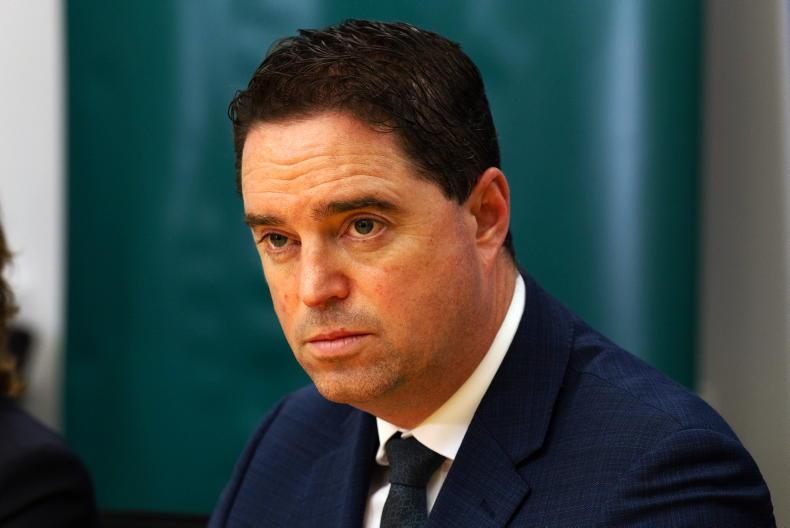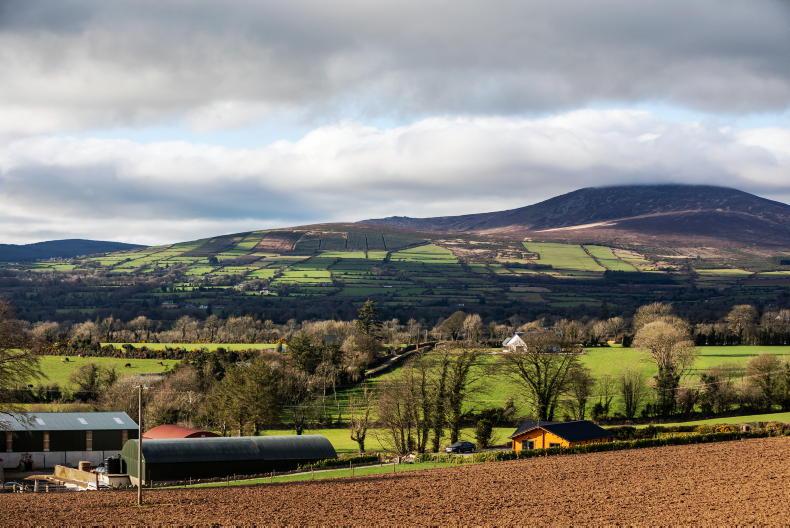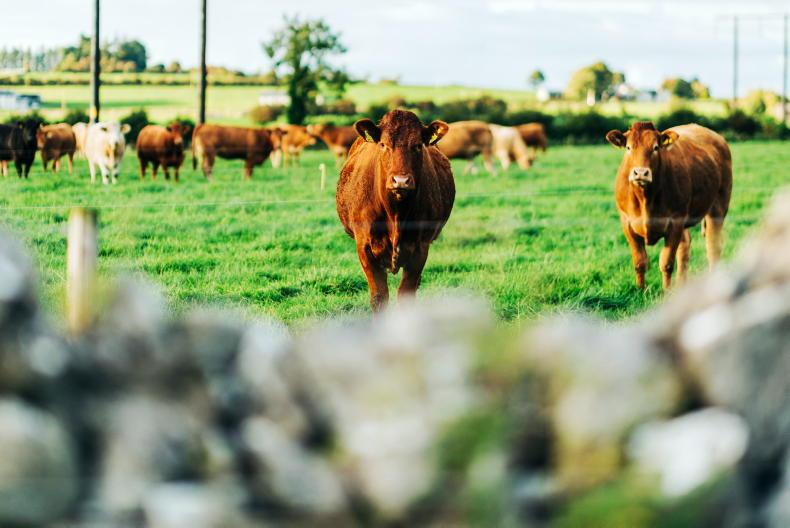EU agriculture ministers disagreed on the way to constitute a financial reserve to address farming crises under the next CAP at a meeting of their council in Brussels this Monday.
All farmers receiving more than €2,000 BPS currently take a cut in their payment every year to constitute a temporary reserve, which they get back at the end of each year. This amounted to €13.4m for Irish farmers last year.
Permanent reserve
European Commissioner for Agriculture Phil Hogan has proposed to keep that money next year to constitute a permanent reserve of over €400m in the future.
If the crisis reserve was used, the EU would look for other funds before applying a cut to farmers' payments again.
In that case, all farmers, including those on BPS smaller than €2,000, would have to contribute.
Commissioner Hogan said the changes would simplify procedures.
Some accepting the roll-over of the 2020 crisis reserve and others insisting that small farmers under €2,000 of BPS should not be asked to contribute again
Minister for Agriculture Michael Creed joined a number of other ministers in opposing the roll-over of money raised from farmers' payments in 2020, saying other funds including any unused CAP money should be targeted first.
If a cut to payment was ever needed to replenish the reserve in the future "as a last resort", Minister Creed agreed that farmers receiving under €2,000 should be levied as well.
Diverging views
However, many ministers had diverging views, some accepting the roll-over of the 2020 crisis reserve and others insisting that small farmers under €2,000 of BPS should not be asked to contribute again.
Commissioner Hogan warned that there was little prospect of unused funds being available to fund the initial crisis reserve.
In this case, "we won't have it," he said.
Budget
The reserve issue was connected to wider CAP funding, with proposed cuts of 5% to direct payments and 15% to rural development programmes under current EU budget proposals.
A wide majority of countries including Ireland supported a declaration presented by Slovenia that "the budget for rural development must be maintained at the level of the current one".
Commissioner Hogan replied that the budget was to be agreed unanimously and separately by finance ministers.
The Dutch and Swedish ministers spoke against increasing proposed funding for rural development in the next CAP.
Annual report
The Commission has also proposed that each country would have more freedom in implementing the next CAP.
However, they would be required to submit an annual report every 15 February to justify how they used the money the previous year under EU financial rules.
"There will no longer be detailed rules against which to justify the eligibility of expenditure," Commissioner Hogan said.
Instead, each country would have to demonstrate progress against the objectives of the CAP, such as environmental performance or generational renewal.
Practical grounds
Minister Creed said that the 15 February deadline "needs to be reconsidered on practical grounds".
The majority of ministers agreed that they could provide statistics on payments, but not analysis on their efficiency within that time frame.
The Romanian presidency suggested that country would be allowed to deviate from EU objectives at first and be required to improve their performance to within 35% of targets by the end of the next CAP in 2026, instead of the stricter 25% proposed by the Commission.
Several countries asked for more flexibility, with some targets being measured every two to three years only, or the tolerance in achieving targets increased to 50%.
Only Dutch Minister for Agriculture Carola Schouten said the current proposal was "workable".
Read more
Flat rate of €250/ha for every farmer by 2026 – INHFA CAP proposals
Design of new CAP schemes to start in a month
EU agriculture ministers disagreed on the way to constitute a financial reserve to address farming crises under the next CAP at a meeting of their council in Brussels this Monday.
All farmers receiving more than €2,000 BPS currently take a cut in their payment every year to constitute a temporary reserve, which they get back at the end of each year. This amounted to €13.4m for Irish farmers last year.
Permanent reserve
European Commissioner for Agriculture Phil Hogan has proposed to keep that money next year to constitute a permanent reserve of over €400m in the future.
If the crisis reserve was used, the EU would look for other funds before applying a cut to farmers' payments again.
In that case, all farmers, including those on BPS smaller than €2,000, would have to contribute.
Commissioner Hogan said the changes would simplify procedures.
Some accepting the roll-over of the 2020 crisis reserve and others insisting that small farmers under €2,000 of BPS should not be asked to contribute again
Minister for Agriculture Michael Creed joined a number of other ministers in opposing the roll-over of money raised from farmers' payments in 2020, saying other funds including any unused CAP money should be targeted first.
If a cut to payment was ever needed to replenish the reserve in the future "as a last resort", Minister Creed agreed that farmers receiving under €2,000 should be levied as well.
Diverging views
However, many ministers had diverging views, some accepting the roll-over of the 2020 crisis reserve and others insisting that small farmers under €2,000 of BPS should not be asked to contribute again.
Commissioner Hogan warned that there was little prospect of unused funds being available to fund the initial crisis reserve.
In this case, "we won't have it," he said.
Budget
The reserve issue was connected to wider CAP funding, with proposed cuts of 5% to direct payments and 15% to rural development programmes under current EU budget proposals.
A wide majority of countries including Ireland supported a declaration presented by Slovenia that "the budget for rural development must be maintained at the level of the current one".
Commissioner Hogan replied that the budget was to be agreed unanimously and separately by finance ministers.
The Dutch and Swedish ministers spoke against increasing proposed funding for rural development in the next CAP.
Annual report
The Commission has also proposed that each country would have more freedom in implementing the next CAP.
However, they would be required to submit an annual report every 15 February to justify how they used the money the previous year under EU financial rules.
"There will no longer be detailed rules against which to justify the eligibility of expenditure," Commissioner Hogan said.
Instead, each country would have to demonstrate progress against the objectives of the CAP, such as environmental performance or generational renewal.
Practical grounds
Minister Creed said that the 15 February deadline "needs to be reconsidered on practical grounds".
The majority of ministers agreed that they could provide statistics on payments, but not analysis on their efficiency within that time frame.
The Romanian presidency suggested that country would be allowed to deviate from EU objectives at first and be required to improve their performance to within 35% of targets by the end of the next CAP in 2026, instead of the stricter 25% proposed by the Commission.
Several countries asked for more flexibility, with some targets being measured every two to three years only, or the tolerance in achieving targets increased to 50%.
Only Dutch Minister for Agriculture Carola Schouten said the current proposal was "workable".
Read more
Flat rate of €250/ha for every farmer by 2026 – INHFA CAP proposals
Design of new CAP schemes to start in a month








SHARING OPTIONS